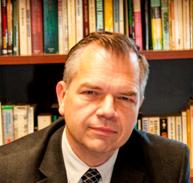Part IV of Four Parts: Part I Part II Part III Part IV
Here’s a list of 50 interesting things I learned and observed from a Vancouver / Canadian / North American perspective on the environment, the town, the university, the colleges and Christianity. This blog focuses on Christianity in Oxford.
CHRISTIANITY
37 Oxford may be one of the more religious places in the UK. There is a vibrant Christian community, reflected in the local churches and initiatives at the university.
38 In the US and Canada, universities which generally started out of Christian roots, have long shorn those vestiges of superstition and irrationality, and focused instead on a logical approach. Religion is seen in opposition to learning, with the false debate between science and religion trotted out regularly.
39 The Church of England remains the official church of the country and the Queen is its head. It has preferred / official status from the government--but not funding. Many Oxford colleges were founded with Christianity embedded in their very fibre (with names like "Jesus College"). Most colleges had an over Christain flavour, reflected in their impressive chapels, staffed by clergy, and enhanced by a choir.
40 There is some pressure from different parts of the university to cleanse it of religious trappings. Richard Dawkins does squawk loudly, of course. However, as one principal of a college told me, you can’t just rid of 500 years of history.
41 There are six permanent private halls ({PPH's) that are part of the University of Oxford and they can retain their Christian character. For example, I was at St Stephen’s House, part of the Anglican Foundation. It trains ordinands and other students. The hall has a definite Anglican and religious character, with two chapels and religious garb afoot. It is still part of Oxford.
42 RAnother PPH is Regent’s Park has a Baptist heritage and has Baptist leadership. At the same time, as an undergrad college it cannot take only Christian students. In fact, it needs to admit the best candidates, regardless of religion. If all things were equal, perhaps a student with the same religious leanings would have an edge—due to compatibility with the college’s aims. The vibe of the college would not be confused with the Christian college in the US or Canada that has predominantly Christian students.
43 The nature of denominations in the UK is quite interesting when compared to North America. Regent’s Park has a Baptist heritage, but wouldn’t describe itself as “evangelical.” This would be a surprise to North Americans. In the US, for example, Baptists would generally be viewed as evangelical, and bordering more to the conservative side of the spectrum, with the occasional dollop of fundamentalism.
44 Anglicanism in England is quite different than in North America. While is Canada it is still called Anglican. In the U.S. the church is called “Episcopalian.” In Canada, the Anglican Church is proudly and uniformly liberal, presiding over the sale of properties and the death of its flock, dwindling into irrelevance, and having successful expunged itself of any evangelical remnants. A growing Anglican church would be akin to man bites dog.
45 Meanwhile, the Church of England in England is quite different. While there is a liberal element, there is also an evangelical dimension—and even a charismatic flair. There is tolerance of diversity within the church. Further, there are growing and vibrant Anglican churches with an evangelical twist.
46 One of the PPH of Oxford is Anglican Wycliffe, which brands itself as “the evangelical college in the heart of Oxford.” N.T. Wright is a graduate. Alister McGrath was Principal for a number of years. They collaborate with evangelical Christian universities in the US on various summer exchanges, etc.
47 These days most Oxford colleges retain chaplains. They generally seem to position themselves as non-religious social workers, imploring students to come and have a chat, soft selling faith in the hopes of relationship building.
48 Many of the Colleges have regular services in their chapels called “Evensong.” The Evensong is essentially the singing of scripture by a 20 person men and boys’ choir for 30 – 40 minutes. The Evensong is scheduled a couple of days each week throughout the semester. For the cynical, they can view chapel as a way to get into the college—and to get into without paying. The Magdalen and Christ Church chapels are stunning.
49 There is an interesting initiative called the “Oxford Character Project” for the training of Christian leaders. It is funded by the Templeton World Charity Foundation and aims to supplement a postgraduate education with a rigorous, academically-informed program for character development. They are oversubscribed with high-quality students who want to join the program.
50 Churches need to build on their history, but be relevant for today. One example is St Ebbe’s which is located where Christians have been meeting together for 1300 years. It describes itself as “A large, friendly evangelical church.” While the origins of this ancient place of worship are lost, St Ebbe's Church formed part of Eynsham Abbey at its foundation by the Ealdorman Aethelmaer in 1005, and is referred to even then as "ancient St Ebbe's." It is thus the earliest mentioned Parish Church in the City of Oxford.
